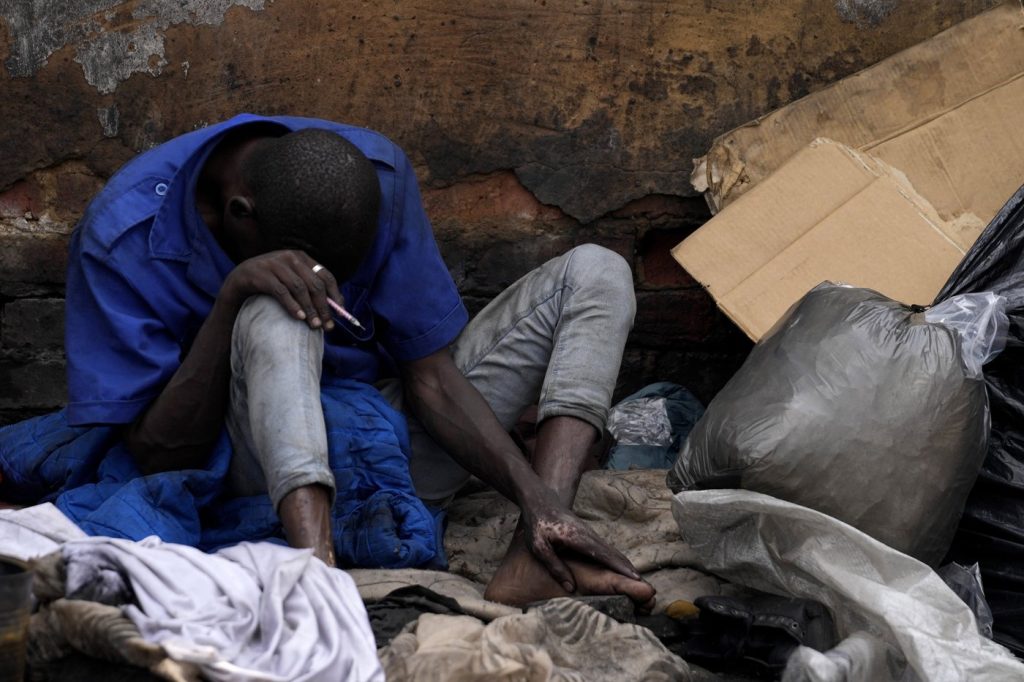PRETORIA, South Africa (AP) A secluded area on the outskirts of Pretoria, South Africa, is struggling with the challenges of drug addiction, with many individuals injecting themselves and each other with heroin-laden mixtures. Sharing needles is a common practice among these users, posing significant health risks, particularly in a country where HIV prevalence remains alarmingly high.
To combat this issue, a group of health workers conducts weekly visits to over a dozen sites in Pretoria, offering needle exchange services backed by the University of Pretoria and the Tshwane municipality. While needle exchange programs are not a novel concept in global health, the support for such initiatives has been shaken by recent cuts to international aid programs, notably the reduction of 83% in funding from the U.S. Agency for International Development under the Trump administration.
In South Africa, where more individuals live with HIV than anywhere else in the world, people who share needles are particularly susceptible to contracting the virus. A report released by the University of Pretoria last year indicated that approximately 84,000 people inject drugs in the country, with an HIV prevalence rate of 38% among drug users in Pretoria. Overall, South Africa's HIV prevalence exceeds 12% based on governmental data.
Additionally, the local drug market has been reported to be worth around $3.5 billion and continues to expand, increasing the pressure on harm reduction programs. Although the Community Oriented Substance Use Program in Pretoria is currently fully funded by municipality and university support, the repercussions of U.S. aid cuts are being felt indirectly. Many partner nonprofits have shuttered their operations, and at least one local health clinic that provided vital services has closed, leading to an influx of patients to already overcrowded and underfunded government health facilities.
The local project operates in a challenging environment as it vies for increasingly limited resources. Phumulani Mahlangu, a 30-year-old homeless individual and father of three, shared his journey with nyaope, a heroin mixture, expressing regret over his addiction and its impacts on his family. He reflects on how he initially felt relaxation in 2013 when he first tried the drug with friends, leading him down a destructive path.
Dipolelo Lekota, one of the few women present among the local drug users, articulated her struggles to quit drugs to care for her child, who is currently with relatives. She acknowledges the assistance she receives from the outreach program, including access to HIV medication and clean needles to reduce the risk of transmitting the virus to others.
Leading the project, Likwa Ncube recognizes the significant difficulties posed by drug withdrawal. He highlights the challenges faced by users who transition to opioid-substitution therapy with methadone, acknowledging that the process of withdrawal can be intensely painful. There is a stigma associated with harm reduction initiatives, with some critics unfairly accusing programs like these of enabling drug use by providing sterile needles. Ncube argues that this viewpoint is akin to criticizing condom distribution as encouraging sexual activity.
The conflict surrounding societal perceptions of harm reduction reflects a broader challenge in public health strategies where the need for compassion and support must meet with community skepticism. The Pretoria initiative represents a crucial effort to engage with marginalized populations in desperate need of interventions that can mitigate the health consequences of drug use. As the situation evolves, the multiplying factors of inadequate resources and societal pressures will continue to shape the effectiveness of such programs in addressing the persistent crisis of drug addiction.










